World
Out in the World: LGBTQ news from Europe and Asia
Poland’s elections took place on Sunday, UK seeks to limit asylum seekers

Ireland
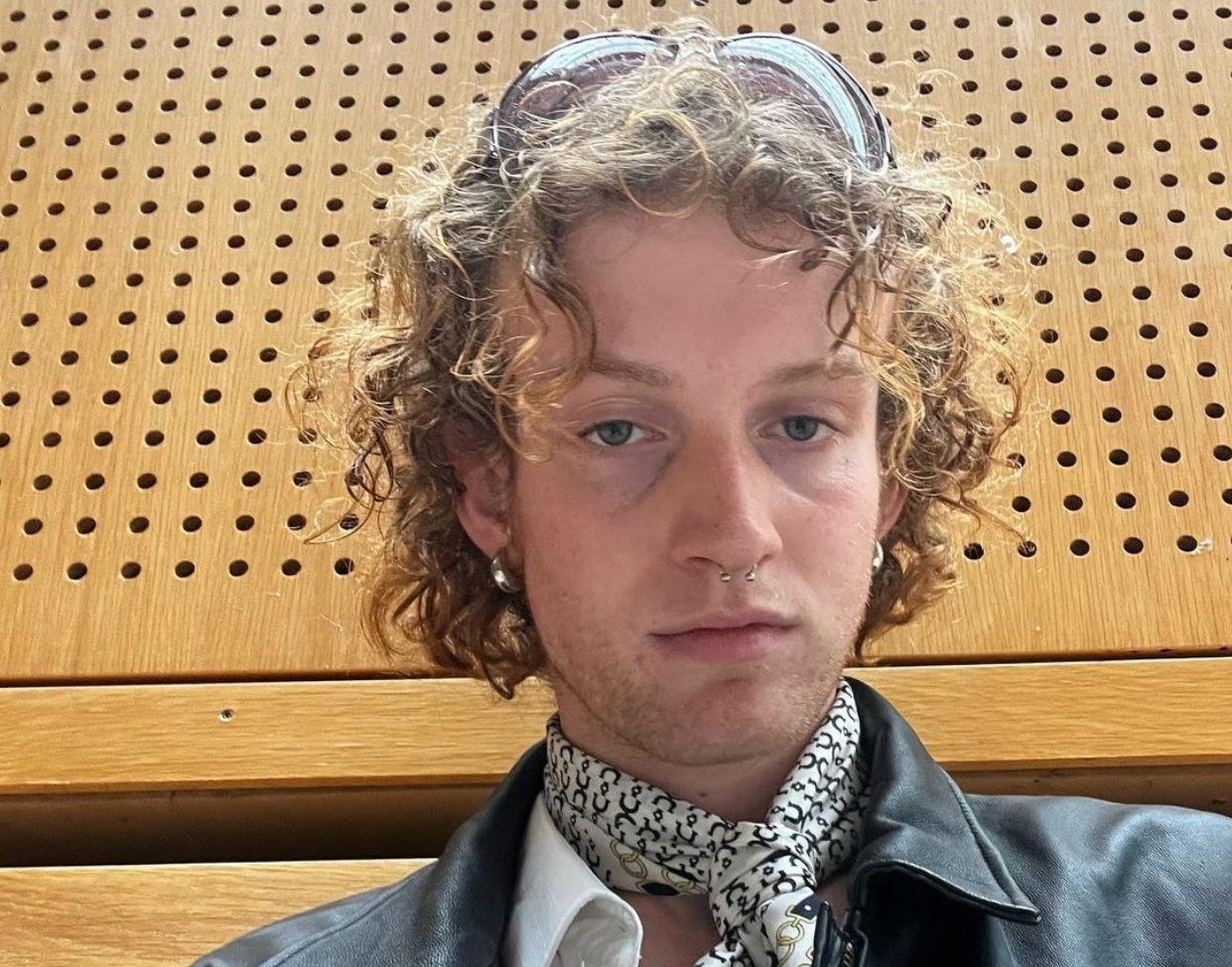
Ireland’s National Police Service is seeking information leading to the arrest of the unknown hit and run driver who struck and killed an openly queer 21-year-old University of Limerick journalism student on Oct 13.
Joe Drennan, a popular and respected student, was the editor-in-chief of Limerick Voice, the award-winning news platform and paper produced by journalism students at the University of Limerick. Drennan was also a contributing writer to Ireland’s LGBTQ media website and magazine GCN.
Dublin-based the Journal News reported that Drennan was standing waiting for a bus around 9.50 p.m., after he had finished a shift at a local restaurant at Dublin Road, Castletroy, Limerick, when a car that had, immediately beforehand, been involved in a collision with another car, as well as an alleged interaction with the police earlier on the night, struck and killed him.
The police said the driver of one of the cars “failed to remain at the scene” and that the driver of the second car, a male in his 40s and a female adult passenger, were taken to University Hospital Limerick for non life threatening injuries.
Drennan’s death has left his family, friends and fellow students and tutors at UL, shocked and distraught.
Paying tribute to Drennan on Sunday, Dr. Kathryn Hayes, course director of journalism and digital communication at the University of Limerick said: “We are absolutely devastated in the journalism department and in the wider UL community to learn of the tragic death of our student Joe Drennan. Our heartfelt sympathies are with Joe’s family at this terrible time and all of his classmates and many dear friends.”
Hayes said Drennan had been “an inspirational student and a hugely talented young journalist, who had a bright career ahead.”
Poland
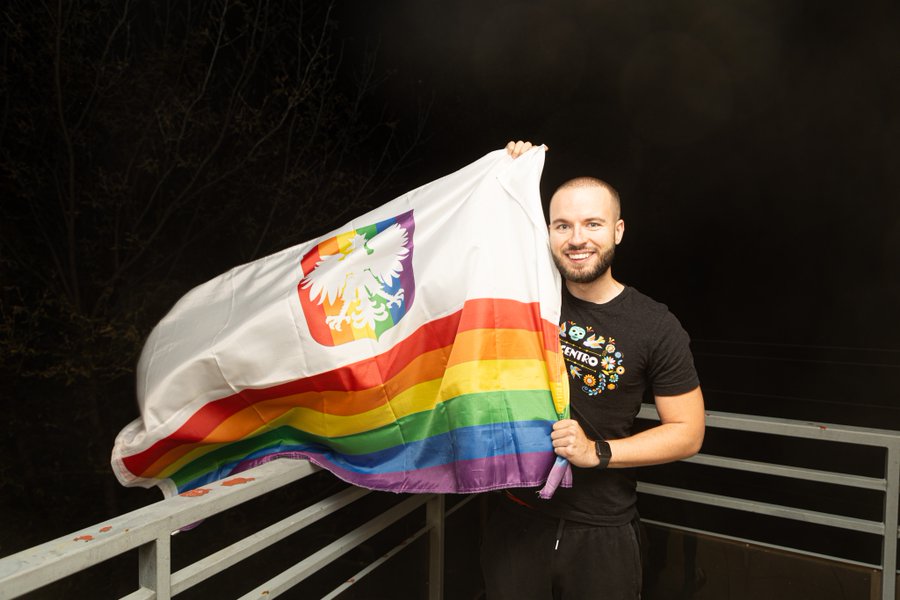
The country’s right-wing populist Law and Justice party, known as PiS, appears to have lost their parliamentary majority in the critical elections held Sunday. The final tally has yet to be announced.
This would end eight years of rule that has seen the Polish government repeatedly clash with the European Union over the rule of law, media freedom, migration and LGBTQ rights since Law and Justice (PiS) came to power in 2015.
Opposition parties led by 66-year-old Donald Tusk’s Civic Coalition have vowed to mend ties with Brussels and undo reforms critics say undermine democratic standards.
Tusk, a former European Council president, is aiming to the PiS rule under Deputy Prime Minister Jaroslaw Kaczynski.
“Poland won, democracy has won,” Tusk told a large crowd of jubilant supporters in what felt like a victory rally in Warsaw. “This is the end of the bad times, this is the end of the PiS government.”
Ipsos polling reported a larger proportion of 18-29 year-olds had turned out to vote than over-60s and election officials said that turnout was probably 72.9 percent, the highest since the fall of communism in 1989.
The BBC reported that President Andrzej Duda, an ally of the socially conservative PiS, would normally ask the biggest party to form a government. However with vote as close as it, if PiS fails to win a vote of confidence, then the Parliament would appoint a new prime minister who would then choose a government and also have to win a confidence vote in Parliament as well.
Leading Polish LGBTQ rights activist Bart Staszewski posted a statement on social media:
“I am gay, I am Polish and I am proud today. After eight years of hate against people like me, LGBT+ people, the creation of LGBT free zones, attacks on women and minorities, Poland is BACK on the path of democracy and the rule of law. This is also end of political trails of human rights activists. This is just the beginning of reclaiming of our country. The fight is ahead but we are breathing fresh air today. After eight years of government hatred, authoritarianism is over in Poland. I still can’t believe it … The nightmare ends …”
Switzerland
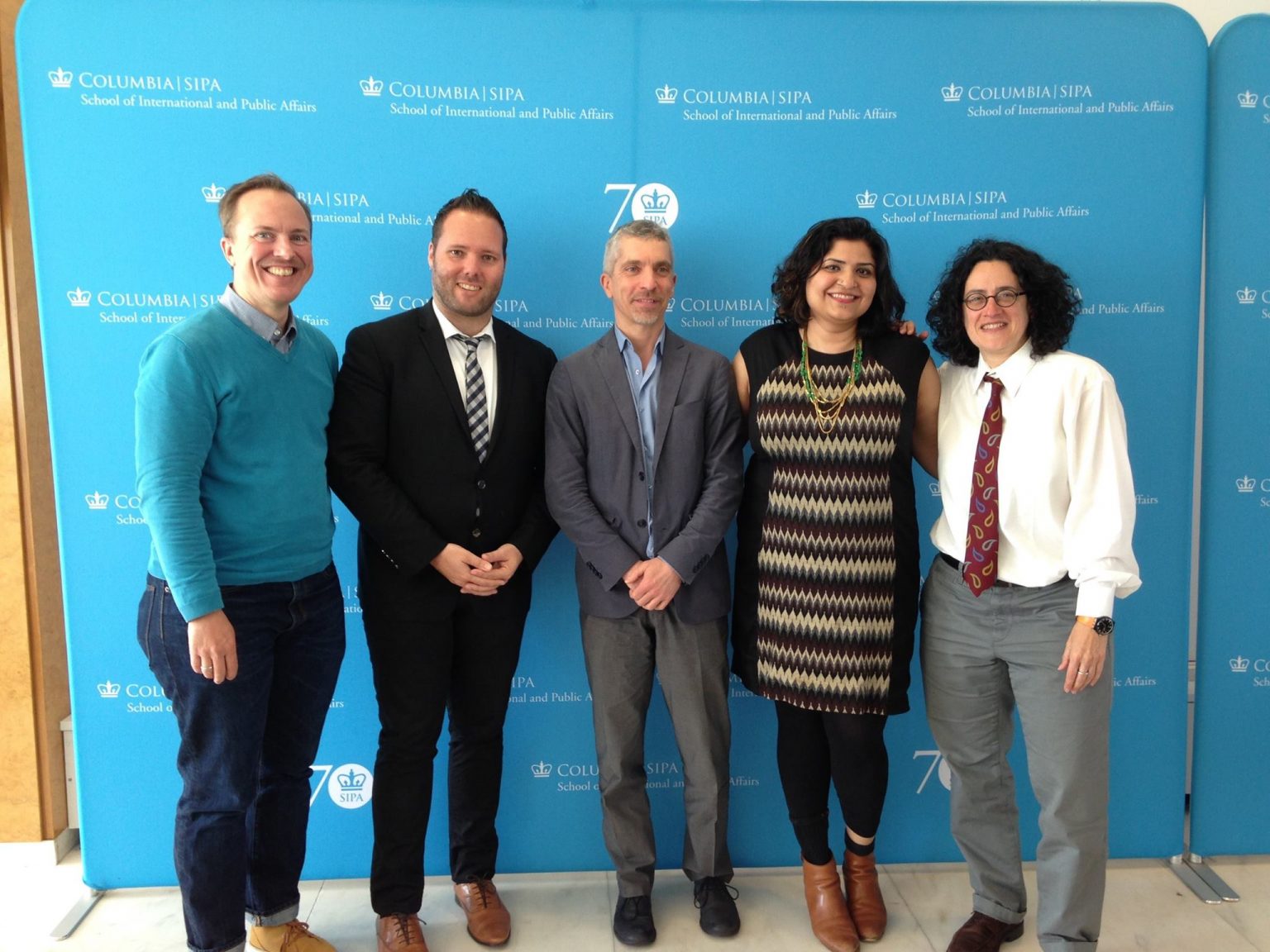
The U.N. Human Rights Council has named Graeme Reid, director of LGBT Rights for Human Rights Watch, as the next Independent Expert on Sexual Orientation and Gender Identity for the UN organization.
Originally from South Africa, Reid is the third person ever to be appointed to hold the #UnitedNations mandate dedicated to addressing specific human rights violations against #LGBT and gender diverse persons, following Vitit Muntarbhorn from Thailand (2016-2017) and Victor Madrigal-Borloz from Costa Rica (2017-2023).
Reid is an expert on LGBTQ rights. He has conducted research, taught and published extensively on gender, sexuality, LGBTQ issues and HIV/AIDS.
Before joining Human Rights Watch in 2011, Reid was the founding director of the Gay and Lesbian Archives of South Africa, a researcher at the Wits Institute for Social and Economic Research and a lecturer in LGBTQ studies at Yale University, where he continues to teach as a visiting lecturer.
An anthropologist by training, Reid received a master’s from the University of the Witwatersrand in Johannesburg and a PhD from the University of Amsterdam.
Turkey

Turkish President Recep Tayyip Erdoğan, speaking before the Congress gathering of his Islamist-rooted AK Party, which currently runs the nation’s government, said earlier this month that “he did not recognize LGBT and vowed to combat perverse trends he stated are aimed to destroy the institution of family.”
Erdoğan, who has held office since 2014, has a lengthy record of anti-LGBTQ statements who has frequently labeled members of the LGBTQ community as “deviants.” At the direction of his government, police agencies across the country have cracked down on Pride events and marches.
Last April, Erdoğan, who was campaigning for reelection, told a rally of supporters in the Aegean city of Izmir, “In this nation, the foundations of the family are stable. LGBT will not emerge in this country. Stand up straight, like a man: that is how our families are,” he added.
While being LGBTQ is not a crime in Turkey, hostility to it is widespread. Same-sex marriage, adoption, surrogacy and IVF are all illegal in the country, as is being openly gay or lesbian person serving in the military.
LGBTQ people are not protected against discrimination in employment, education, housing, healthcare, public accommodations or credit and police crackdowns often at the direction of the government have become tougher over the years.
France

Eric Zemmour, the far-right political leader and former presidential candidate was convicted and fined for for homophobic statements he uttered while being interview on the French national news network CNews program Face à l’info hosted by Christine Kelly four years ago in October 2019.
French online news magazine Têtu.com reported that The Stop Homophobia association had filed a complaint against comments made by Zemmour on the Oct. 15, 2019, show. Speaking about LGBTQ rights during a long debate with Nicolas Bouzou, Zemmour declared: “We have the whims of a small minority which has control over the State and which enslaves it for its own benefit and which will first disintegrate the society, because we are going to have children without a father and I have just told you that it is a catastrophe and, secondly, who is going to make all the other French people pay for his whims.”
The judge of the Cour de Cassation, the highest court of criminal and civil appeal in France, with the power to quash the decisions of lower courts, ruled that Zemmour had acted with“ Behavior contrary to the general interest.” In his decision the judge noted:
“The comments are contemptuous of the people they target, who see their desire for a child reduced to a selfish ‘whim’ and even take on an outrageous dimension when it is attributed to them, to satisfy it, to have recourse to the subjugation of the state apparatus.”
“In this, homosexual people find themselves disqualified in the eyes of the public for who they are, their sexual orientation necessarily inducing, according to the defendant, behavior contrary to the general interest,” he added.
Zemmour was sentenced to a fine of 4,000 euros ($4,223.42).
United Kingdom

The government of Prime Minister Rishi Sunak is receiving copious amounts of criticism and outrage among the nation’s LGBTQ community and its allies for the anti-LGBTQ refugee asylum seekers and transphobic stance that has been taken by various government ministers including Sunak himself.
In a recent speech delivered last month on Sept. 26 at the American Enterprise Institute in D.C., Home Secretary Suella Braverman addressing the government’s policies towards immigration told the audience:
“I think most members of the public would recognize those fleeing a real risk of death, torture, oppression or violence as being in need of protection. However, as case law has developed, what we have seen in practice is an interpretive shift away from persecution in favor of something more akin to a definition of discrimination. And there has been a similar shift away from a well-founded fear towards a credible or plausible fear, the practical consequence of which has been to expand the number of those who may qualify for asylum, and to lower the threshold for doing so.
“Let me be clear, there are vast swaths of the world where it is extremely difficult to be gay, or to be a woman, where individuals are being persecuted, it is right that we offer sanctuary, but we will not be able to sustain an asylum system, if in effect, simply being gay, or a woman, or fearful of discrimination in your country of origin is sufficient to qualify for protection.
Article 31 of the refugee convention makes clear that it is intended to apply to individuals coming directly, directly from a territory where their life was threatened. It also states where people are crossing borders without permission, they should present themselves without delay to the authorities, and must show good cause for any illegal entry. The U.K., along with many others, including America, interpret this to mean that people should seek refuge and claim asylum in the first safe country that they reach. But NGOs and others, including the U.N. Refugee Agency, contest this. The status quo where people are able to travel through multiple safe countries and even reside in safe countries for years, while they pick and choose their preferred destination to claim asylum is absurd and unsustainable.
Nobody entering the U.K. by boat from France is fleeing imminent peril. None of them has good cause for illegal entry. The vast majority have passed through multiple other safe countries, and in some instances have resided in safe countries for several years. There was a strong argument that they should cease to be treated as refugees during their onward movement. There are also many whose journeys originate from countries that the public would consider to be manifestly safe like Turkey, or Albania or India. In these instances, most are simply economic migrants gaming the asylum system to their advantage.”
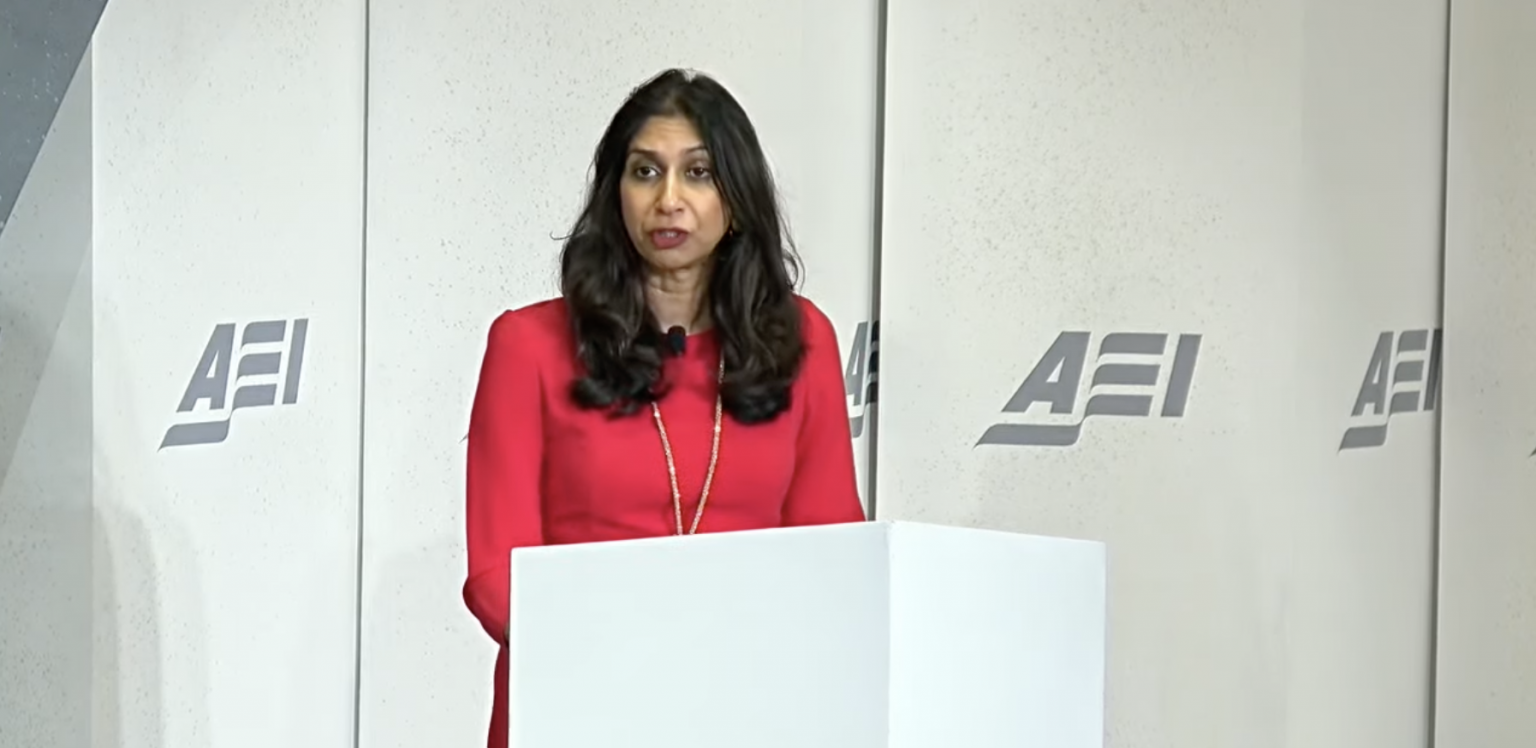
Braverman’s specific remarks portraying Turkey as “manifestly” safe drew harsh critique from LGBTQ groups in Britain pointing out that Erdoğan has publicly labeled LGBTQ people “deviants.”
PinkNewsUK reported that 246 human rights groups banded together to demand that the UK government respect the lives of women and LGBTQ people after Braverman’s D.C. speech.
A joint letter produced by LGBTQ charity Stonewall, and signed by organizations like Amnesty, Oxfam, Refugee Council, Rainbow Migration, and End Violence Against Women Coalition, calls on Sunak to reaffirm the UK’s commitment to protecting LGBTQ people and women worldwide.
The letter also rejects Braverman’s suggestion that LGBTQ people and women are misusing their identities to claim asylum in the UK.
On Oct. 6, the UK government released its annual report that revealed there were 145,214 hate crimes recorded by police in England and Wales in 2022-2023, a slight 5 percent decrease compared to the previous year.
In a briefing outlining new hate crime figures for the UK, the Home Office said that transgender issues had been “heavily discussed by politicians, the media and on social media” over the last year, which it said “may have led to an increase in these offenses.”
It added that the government’s focus on transgender issues could also have led to “more awareness in the police in the identification and recording of these crimes.”
Stonewall, the UK’s largest LGBTQ charity organization, noted that this recent report’s data comes in a continuing surge in reports of anti-LGBTQ and anti-transgender hate in recent months across Britain, Wales and Northern Ireland.
The blame LGBTQ advocates in the UK say also lies with the Prime Minister’s transphobic public comments. At the Conservative Party conference on Oct. 4, the prime minister claimed that Brits are being “bullied” into believing that “people can be any sex they want to be.” He then said it was “common sense” that a “man is a man and a woman is a woman.”
Robbie de Santos, director of external affairs at Stonewall, told PinkNewsUK he is concerned that political figures are dehumanizing LGBTQ people, which “legitimizes violence” instead of acting “seriously or quickly enough” to tackle the rising tide of hate.
Philippines
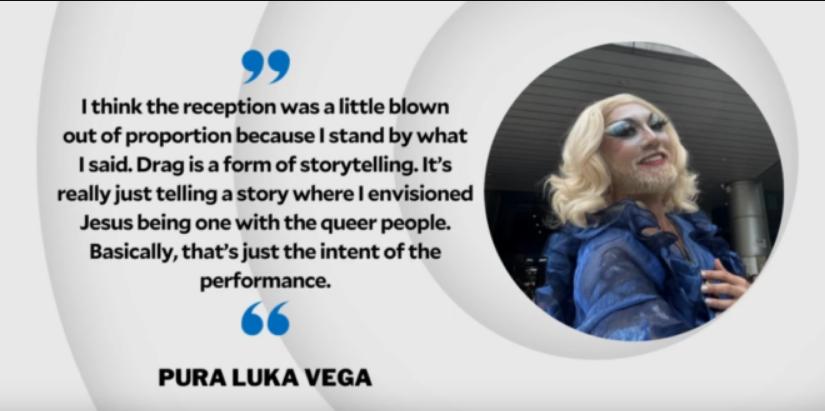
A 33-year-old drag queen, who is currently incarcerated in a Manila jail, is facing up to 12 years in prison under the Catholic-majority country’s obscenity laws for his performance dressed as Jesus Christ, performing a rock version of the Lord’s Prayer in Tagalog.
Amadeus Fernando Pagente, who performs under the stage/drag name Pura Luka Vega, was arrested by Manila police earlier this month after the Philippines for Jesus Movement, comprising Protestant church leaders, registered the first criminal complaint with the Manila Prosecutor’s Office in July of this year followed in August by a second complaint was then filed in August by Nazarene Brotherhood, a Catholic group the BBC reported.
A video of the performance by Pagente had sparked criminal complaints by the Christian groups.

In interviews with AFP, supporters of Pagente are calling for his release with the #FreePuraLukaVega hash tag, arguing that “drag is not a crime.” Some compared the performer’s predicament with alleged murderers and sex crime offenders, whom they claimed remain free and have not been justly dealt with.
Pagente himself told AFP: “The arrest shows the degree of homophobia” in the Philippines. “I understand that people call my performance blasphemous, offensive or regrettable. However, they shouldn’t tell me how I practice my faith or how I do my drag.”
Ryan Thoreson, a specialist at the Human Rights Watch’s LGBT rights program, also called for the charges against Pagente to be dropped.
“Freedom of expression includes artistic expression that offends, satirizes, or challenges religious beliefs,” Thoreson told the BBC.
Additional reporting from GCN, The Journal, BBC, PinkNewsUK, and Têtu.com
India
Activists push for better counting of transgender Indians in 2026 Census
2011 count noted 488,000 trans people in country

India is preparing to conduct a nationwide Census in April, the first since 2011.
Interim projections based on the previous Census placed India ahead of China as the world’s most populous country. A Technical Group on Population Projections projection in July 2020, chaired by the Registrar General of India, estimated the country’s population in 2023 was 1.388 billion. Transgender Indians are now raising concerns about the data collectors and their sensitization.
Activists have raised concerns about whether data collectors are adequately sensitive to the community ahead of the Census. Government training material emphasizes household engagement, data privacy and sensitivity while asking personal questions, but publicly available flyers do not outline specific guidance or training related to recording trans identity during enumeration.
Concerns around the counting of trans people in India are not new.
The 2011 Census recorded around 488,000 trans people, a figure activists and researchers have described as a likely undercount due to stigma, misclassification, and a reluctance to self-identify. Subsequent surveys and field reports have pointed to inconsistencies in how gender identity is recorded and the absence of uniform sensitivity among Census data collectors. Rights groups and policy researchers have also warned that gaps in official data affect access to welfare schemes, legal recognition, and targeted public policy, making accurate counting central to future Census exercises.
A decade after the 2011 Census formally recorded trans people as a distinct category, multiple studies have continued to document entrenched socio-economic disparities. Research has pointed to lower literacy rates, limited workforce participation and barriers to healthcare access within the community.
A National Human Rights Commission-supported study cited in subsequent reporting found a significant proportion of trans respondents reported employment discrimination, underscoring the gap between formal recognition and lived economic inclusion.
Educational exclusion has remained a persistent concern within the trans community. Studies have documented higher dropout rates, lower literacy levels and barriers to continuing education, often linked to stigma, discrimination and limited institutional support. Policy researchers note that despite formal recognition in official data after 2011, targeted interventions addressing school retention and access for trans people have remained uneven.
Access to housing schemes has reflected similar gaps.
The Washington Blade in December reported only a small number of trans people have benefited from India’s flagship low-income housing program, despite its nationwide rollout and eligibility provisions. The findings underscored continuing barriers to inclusion in welfare delivery systems.
The Social Justice and Empowerment Ministry and the Office of the Registrar General and Census Commissioner did not respond to the Blade’s multiple requests for comment regarding sensitization measures for Census data collectors and the recording of trans identity in the upcoming Census.
Karnataka state in southern India last September conducted its first statewide baseline survey of gender minorities. The Department of Women and Child Development, in collaboration with the Karnataka State Women’s Development Corporation, launched the initiative to document the lives of trans people across 31 administrative districts.
When the results were released, the survey identified 10,365 trans people. The country’s 2011 Census, by comparison, recorded 20,266 trans people in Karnataka, nearly double the 2025 figure. The discrepancy raised questions about how the state’s recorded trans population appeared to decline over 14 years.
The discrepancy in Karnataka’s survey has intensified scrutiny over how gender minorities are counted. Reports questioned the methodology used in the 2025 exercise, which was conducted over 45 days beginning in mid-September. Instead of door-to-door enumeration, trans people were required to report to designated registration sites — primarily district-level public hospitals and sub-district government health facilities. The approach presented barriers for potential participants, particularly those in rural areas, those without reliable transportation, those wary of institutional settings due to prior discrimination, or those who did not know about the count, raising the possibility of exclusion.
Bihar state in eastern India in January 2023 conducted a caste-based survey that included trans respondents.
The final report identified 825 trans people in the state, compared with 40,827 recorded in the 2011 Census. Activists disputed the figure, calling it inaccurate and pointing to community estimates that suggested higher numbers, including in Patna, the state capital, raising concerns about significant undercounting.
The 2011 Census marked the first attempt to enumerate trans people at the national level, but researchers and activists have described the exercise as limited in scope.
It recorded 487,803 people under the “other” category, a classification used for respondents who did not identify as male or female. Analysts have argued that the figure likely underestimated the community’s size.
The Census questionnaire provided three sex categories — “male,” “female,” and “other” — a framework that critics said did not fully capture the diversity of gender identity and may have affected how some respondents chose to identify.
During the 2011 Census, enumeration practices varied across regions.
In states such as Tamil Nadu, local reporting indicated estimates were at times derived from existing administrative records, including state-issued trans identity cards, rather than solely through door-to-door identification. Such approaches risked excluding individuals who did not possess identity documentation or were not registered with welfare boards, raising concerns about gaps in coverage.
Official data from the Social Justice and Empowerment Ministry shows only a few hundred trans people as of early 2025 have been issued identity cards through the national portal, despite nearly 2,000 applications being submitted. Many are still pending or have been rejected.
Critics of the 2011 Census said many Census data collectors were not adequately trained or sensitized to engage with gender identity beyond traditional binary classifications. Similar, detailed guidelines specific to trans sensitization have not been publicly made available for the 2026 Census, according to an examination of training materials and official circulars.
Akkai Padmashali, a trans rights activist, told the Blade that Census data collectors in earlier exercises were often not sensitized and lacked awareness of intersex people and gender-diverse communities. She said trans people and other gender and sexual minorities continue to face social exclusion and require careful handling during door-to-door data collection. Padmashali called for targeted training of data counting officers and said the government should treat the issue as a priority, adding the trans population is likely to be higher than what was recorded in 2011 and efforts to make officials more sensitive to the community are necessary.
“We will definitely join our hands with this move the government of India has taken,” said Padmashali. “I think there should be proper guidance from the main in-charge people who are conducting this enumeration, and if no such proper information is given to these Census data collectors, it is difficult to gather any sort of information concerned.”
“This whole issue of self-identification — I think India, in its current situation, is not in such a way that it openly accepts people’s identities,” she added. “It will be challenging, it will be difficult, it will be a struggle to offer people the opportunity to express their identities as concerned. But to make sure those who are part of the sexual minority community are counted, I think we also take responsibility for educating people to be part of the enumeration.”
Padmashali said many people are not accustomed to using mobile devices and only a limited number are familiar with them. She said technology should not mislead or misguide the collection of information. Padmashali added she and other trans people plan to engage with Census data collectors and officials who organize the Census.
“Government should have local meetings,” said Padmashali. “Government should hold regional consultations on why the national enumeration is important, because we also know that from 2011 to 2026 is almost 15 years, and now we are here.”
“The government should hold local meetings, especially in their constituencies,” she added. “If the government meets with non-government organizations and civil society groups, this could become a more inclusive exercise across the country. India has a population of more than 1.4 billion, and I think this is the appropriate time to bring accurate statistics to help draft policies in the context of the larger community concerned.”
Books
New book profiles LGBTQ Ukrainians, documents war experiences
Tuesday marks four years since Russia attacked Ukraine

Journalist J. Lester Feder’s new book profiles LGBTQ Ukrainians and their experiences during Russia’s war against their country.
Feder for “The Queer Face of War: Portraits and Stories from Ukraine” interviewed and photographed LGBTQ Ukrainians in Kyiv, the country’s capital, and in other cities. They include Olena Hloba, the co-founder of Tergo, a support group for parents and friends of LGBTQ Ukrainians, who fled her home in the Kyiv suburb of Bucha shortly after Russia launched its war on Feb. 24, 2022.
Russian soldiers killed civilians as they withdrew from Bucha. Videos and photographs that emerged from the Kyiv suburb showed dead bodies with their hands tied behind their back and other signs of torture.

Olena Shevchenko, chair of Insight, a Ukrainian LGBTQ rights group, wrote the book’s forward.

The book also profiles Viktor Pylypenko, a gay man who the Ukrainian military assigned to the 72nd Mechanized Black Cossack Brigade after the war began. Feder writes Pylypenko’s unit “was deployed to some of the fiercest and most important battles of the war.”
“The brigade was pivotal to beating Russian forces back from Kyiv in their initial attempt to take the capital, helping them liberate territory near Kharkiv and defending the front lines in Donbas,” wrote Feder.
Pylypenko spent two years fighting “on Ukraine’s most dangerous battlefields, serving primarily as a medic.”
“At times he felt he was living in a horror movie, watching tank shells tear his fellow soldiers apart before his eyes,” wrote Feder. “He held many men as they took their final breaths. Of the roughly one hundred who entered the unit with him, only six remained when he was discharged in 2024. He didn’t leave by choice: he went home to take care of his father, who had suffered a stroke.”
Feder notes one of Pylypenko’s former commanders attacked him online when he came out. Pylypenko said another commander defended him.
Feder also profiled Diana and Oleksii Polukhin, two residents of Kherson, a port city in southern Ukraine that is near the mouth of the Dnieper River.
Ukrainian forces regained control of Kherson in November 2022, nine months after Russia occupied it.
Diana, a cigarette vender, and Polukhin told Feder that Russian forces demanded they disclose the names of other LGBTQ Ukrainians in Kherson. Russian forces also tortured Diana and Polukhin while in their custody.
Polukhim is the first LGBTQ victim of Russian persecution to report their case to Ukrainian prosecutors.

Feder, who is of Ukrainian descent, first visited Ukraine in 2013 when he wrote for BuzzFeed.
He was Outright International’s Senior Fellow for Emergency Research from 2021-2023. Feder last traveled to Ukraine in December 2024.
Feder spoke about his book at Politics and Prose at the Wharf in Southwest D.C. on Feb. 6. The Washington Blade spoke with Feder on Feb. 20.
Feder told the Blade he began to work on the book when he was at Outright International and working with humanitarian groups on how to better serve LGBTQ Ukrainians. Feder said military service requirements, a lack of access to hormone therapy and documents that accurately reflect a person’s gender identity and LGBTQ-friendly shelters are among the myriad challenges that LGBTQ Ukrainians have faced since the war began.
“All of these were components of a queer experience of war that was not well documented, and we had never seen in one place, especially with photos,” he told the Blade. “I felt really called to do that, not only because of what was happening in Ukraine, but also as a way to bring to the surface issues that we’d had seen in Iraq and Syria and Afghanistan.”

Feder also spoke with the Blade about the war’s geopolitical implications.
Russian President Vladimir Putin in 2013 signed a law that bans the “promotion of homosexuality” to minors.
The 2014 Winter Olympics took place in Sochi, a Russian resort city on the Black Sea. Russia annexed Crimea from Ukraine a few weeks after the games ended.
Russia’s anti-LGBTQ crackdown has continued over the last decade.
The Russian Supreme Court in 2023 ruled the “international LGBT movement” is an extremist organization and banned it. The Russian Justice Ministry last month designated ILGA World, a global LGBTQ and intersex rights group, as an “undesirable” organization.
Ukraine, meanwhile, has sought to align itself with Europe.
Ukrainian President Volodymyr Zelenskyy after a 2021 meeting with then-President Joe Biden at the White House said his country would continue to fight discrimination based on sexual orientation and gender identity. (Zelenskyy’s relationship with the U.S. has grown more tense since the Trump-Vance administration took office.) Zelenskyy in 2022 publicly backed civil partnerships for same-sex couples.
Then-Ukrainian Ambassador to the U.S. Oksana Markarova in 2023 applauded Kyiv Pride and other LGBTQ and intersex rights groups in her country when she spoke at a photo exhibit at Ukraine House in D.C. that highlighted LGBTQ and intersex soldiers. Then-Kyiv Pride Executive Director Lenny Emson, who Feder profiles in his book, was among those who attended the event.
“Thank you for everything you do in Kyiv, and thank you for everything that you do in order to fight the discrimination that still is somewhere in Ukraine,” said Markarova. “Not everything is perfect yet, but you know, I think we are moving in the right direction. And we together will not only fight the external enemy, but also will see equality.”
Feder in response to the Blade’s question about why he decided to write his book said he “didn’t feel” the “significance of Russia’s war against Ukraine” for LGBTQ people around the world “was fully understood.”
“This was an opportunity to tell that big story,” he said.
“The crackdown on LGBT rights inside Russia was essentially a laboratory for a strategy of attacking democratic values by attacking queer rights and it was one as Ukraine was getting closet to Europe back in 2013, 2014,” he added. “It was a strategy they were using as part of their foreign policy, and it was one they were using not only in Ukraine over the past decade, but around the world.”
Feder said Republicans are using “that same strategy to attack queer people, to attack democracy itself.”
“I felt like it was important that Americans understand that history,” he said.
Netherlands
Rob Jetten becomes first gay Dutch prime minister
38-year-old head of government sworn in on Monday

Rob Jetten on Monday became the Netherland’s first openly gay prime minister.
Jetten’s centrist D66 party won the country’s elections last October, narrowly defeating Geert Wilders’ far-right Party for Freedom.
King Willem-Alexander on Monday swore in Jetten, who is also the country’s youngest-ever prime minister. The Associated Press notes Jetten’s coalition government includes the center-right Christian Democrats and the center-right People’s Party for Freedom and Democracy.
“Proud to be able to do this together,” said Jetten in an X post before Willem-Alexander swore him in.
COC Nederland, a Dutch LGBTQ advocacy group, in a statement said Jetten “becoming prime minister shows that your sexual orientation doesn’t have to matter.”
“You can become a construction worker, a doctor, a lawyer, and even prime minister,” said COC Nederland.
The advocacy group noted Jetten has said his government will implement its “Rainbow Agreement” that include calls for strengthening nondiscrimination laws “to better protect transgender and intersex people,” appointing more “discrimination investigators … to address violence against LGBTQ+ people and other minorities,” and introducing measures “to promote acceptance in schools.”
“COC will hold the Cabinet to that promise,” said COC Nederland.
Jetten’s fiancé is Nicolás Keenen, an Argentine field hockey player who competed in the 2024 Summer Olympics in Paris.
Jetten is one of two openly gay heads of government: Andorran Prime Minister Xavier Espot Zamora came out in 2023. Gay Latvian President Edgars Rinkēvičs, who is the country’s head of state, took office in 2023.
Leo Varadkar, who was Ireland’s prime minister from 2017-2020 and from 2022-2024, and Xavier Bettel, who was Luxembourg’s prime minister from 2013-2023, are gay. Ana Brnabić, who was Serbia’s prime minister from 2017-2024, is a lesbian.
Former Icelandic Prime Minister Jóhanna Sigurðardóttir in 2009 became the world’s first openly lesbian head of government. Former Belgian Prime Minister Elio Di Rupo, former San Marino Captain Regent Paolo Rondelli, and former French Prime Minister Gabriel Attal are also openly gay.
Colombian presidential candidate Claudia López, who is the former mayor of Bogotá, the Colombian capital, would become her country’s first female and first lesbian president if she wins the country’s presidential election that is taking place later this year.
-

 Mexico5 days ago
Mexico5 days agoUS Embassy in Mexico issues shelter in place order for Puerto Vallarta
-

 Netherlands4 days ago
Netherlands4 days agoRob Jetten becomes first gay Dutch prime minister
-

 Sports4 days ago
Sports4 days agoMore than a dozen LGBTQ athletes medal at Olympics
-

 Books3 days ago
Books3 days agoNew book profiles LGBTQ Ukrainians, documents war experiences


















